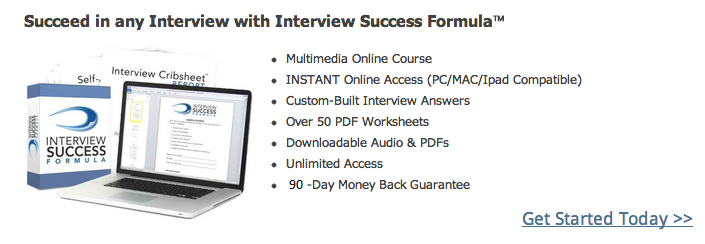 Prior to the existence of online recruitment, job interviews for a technical role focused on the discovery and determination of the job seeker’s technical skills. Times have changed quite a bit. With recurring tools like resume databases, applicant tracking systems, social recruiting sites and portfolio hosting websites, recruiters can learn rather quickly the details of a candidate’s technical prowess.
Prior to the existence of online recruitment, job interviews for a technical role focused on the discovery and determination of the job seeker’s technical skills. Times have changed quite a bit. With recurring tools like resume databases, applicant tracking systems, social recruiting sites and portfolio hosting websites, recruiters can learn rather quickly the details of a candidate’s technical prowess.
Another departure from the past is that employers today are “smarter” at hiring. They spend much more time screening candidates prior to offering an onsite interview. There are also more gatekeepers in the hiring process than in decades past to create the checks an balances necessary to identify the “best fit” candidate.
So, if a job interview for a technical role will not focus on determining your technical skills and background, what exactly is this interview going to be about? And, how do you prepare for such an interview?
A common approach to preparing for such an interview is to search the Internet for questions and answers. But, if everyone has the likely questions and the “canned” answers, do you really think “smart” employers are going to make a hiring decision based on well-known questions and answers? The answer is self-evident. Clearly, another type of interview preparation must be considered. That is the topic of this article.
Review of Interviews for Technical Roles
Let us do a quick comment and review of several interviews to look into the process to see if we can understand the nature of the interview itself. With this understanding, we can develop a program to prepare for the interview. Here are a few recent examples I have experienced in my consulting practice:
Web Administrator: This job candidate interviewed at a college in the marketing department where she would manage the content management system for the department’s web portal. This position required Web skills along with marketing, communication, and project management skills. But, over the course of the onsite interview, there was only a passing inquiry into her technical skills. Why? Her resume detailed skills such as: HTML, SEO, SEM, C++, SQL, Drupal, InDesign, Dreamweaver, and more. What was exactly discussed in the interview? Well, the college had an IT department that the marketing department called to perform Web updates, etc. In fact, the there was a liaison between the two departments; however, she was doing a poor job of liaising. This created a power struggle between the two departments. So, the marketing department wanted to hire someone who could “manage” the IT department better.
UNIX/AIX Administrator: This job candidate was being considered for a job at a credit card company as a sys admin. Prior to the interview, several recruiters contacted her. There was an intense skills discovery phase that included technical questionnaire of 50 questions such as:
- Given that the remote NFS server hostname is “yoda” and it has exported /datafs, what is the client command to mount yoda’s /datafs export over /mnt on the client?
- What is the most common type of tunnel normally associated with IPSEC?
- Have you worked with NTP on AIX? What is the ntp daemon on AIX?
After being interviewed by two recruiters, she was given an onsite interview at the employer’s offices. The focus of interview was (a) selling the job candidate on what a great job this was and (b) could she work 24/7 with her regular work schedule being from 10 pm to 6am. They stated they had 2 positions to fill but had few applicants and limited the compensation to below $100K, which had no takers.
Technical Analyst: This job candidate was brought in for an interview at a digital ad agency. He had published online work portfolio of well-known Fortune 500 clients. The focus of the interview was (a) budget overruns, (b) serial turnover of project managers in 10 months, and (c) a completely dissatisfied staff.
These are rather common interviews for technical roles. It is easy to see that the meat of the interview was not about technology but the “pain points” of the business that were preventing the organization from achieving its goals. The person that would be offered the job was the one who could eliminate the pain.
Interview Preparation in the Real World
While all interviews will, as a matter of formality, ask some standard interview questions, hiring decisions rarely are based upon these canned performances. Real-world, interview preparation requires the job candidate to determine what the pain points are and pitch to the interviewer that she/he is the pain killer. How is that done? Here are some ways:
1. Learn about the company: go to the employer’s website and review its current press releases and case studies. Determine what problems they solve and learn about their major customers. Then, go to investment sites and search for the company’s most recent quarterly report, if it is not in the Investor Relations section of the site. Finally, go to a web search engine and search for information use the following keyword string: “[company name] + complaints” If they are having problems, something will pop up.
2. Pit the recruiters against one another: Most “smart” employers use more than one recruiter. Larger organizations use up to 5 external recruiters besides posting job ads on the common job boards and social recruiting sites. A job candidate will get a slightly different story from each recruiter. So, begin asking the recruiter some probing questions:
- Why is the position open?
- What’s the turnover?
- What do they really need?
- What are their pain points?
If you experience some resistance, just tell them that you have been contacted by another recruiter and have a nice day. You’ll get an answer sooner than you think.
3. Write alternate elevator pitches: in response to what you have learned in the screening phase of the interview. Elevator pitches are short answers to the question: Tell me about yourself and background. After stating your experience and education add that “I have a demonstrated record in liaising with difficult IT departments (Web Administrator example) or I have a very flexible schedule and I like the graveyard shift (Unix Administrator example) or I am outstanding at meeting budgets and managing rotating project managers (Technical Analyst example).
4. Prepare Good Questions for the Interviewer: Most job candidates have pathetic questions for job interviewers. What are your benefits? What is the career path? Etc. Etc. It’s not what they want to hear because they are looking for someone to solve their pain. So, prepare questions that respond to the pain.
For example (Web Administrator):
You have described to me a challenging relationship between your IT and marketing departments. I understand this challenge because I have liaised between customers and designers on a frequent basis. Am I correct in understanding your department’s challenge?
Few if any candidates will ever dream of asking this type of question. Hence, if you do, you will create both extreme and positive market differentiation.
Prepare for an Interview Not an Audition
No one can predict what will be asked or discussed in a job interview. There are too many different types of technical roles, situations, and pain points. But preparing answers for the canned questions alone will not necessarily seal the deal for you. Job interviews are not simply auditions for an acting role. Rather, they more involved and function on a variety of levels. Some of these levels are basic and superficial. But the most important levels -- the ones that drive the competitive hiring decision -- are leveraged to solving the pain.


